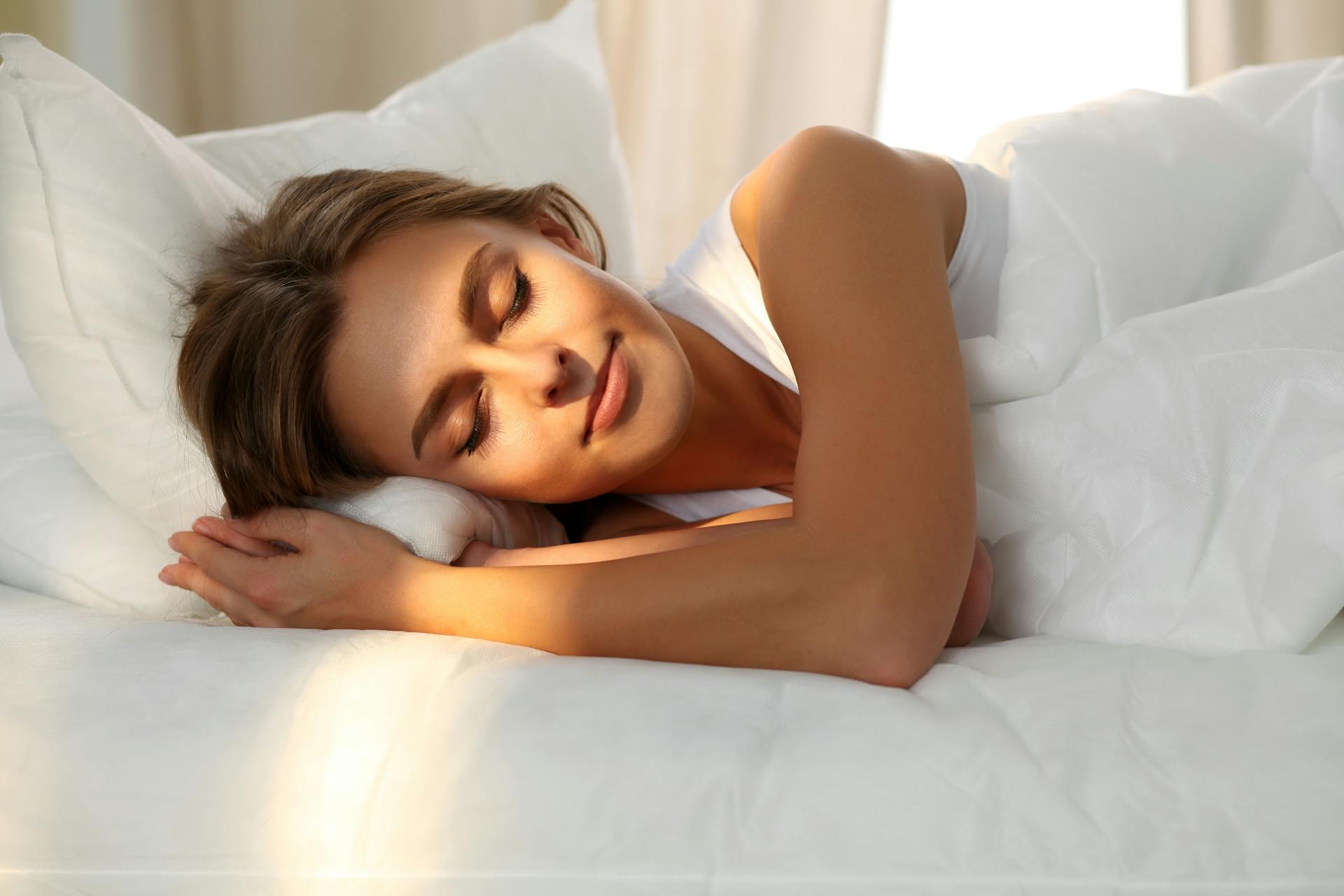Author: Mark Newey, Mental Wellness Coach & Teacher
Let’s face it, modern life is not conducive to sleep: we’re all too busy and too stimulated! But if you look back to cave times, or even 50 years ago, there’s a clear route to having a refreshing night’s sleep. If you think about it, the electric light bulb was one of the worst things invented... at least for sleep! Before electricity, our sense of daytime and night time was very simple: we went to bed when it got dark (e.g. 8pm) and got up when it got light (e.g. 6 am). That’s how humans would have behaved for millions of years. The problem is that evolution takes a long time.
With that in mind, there are behaviours and habits we need to develop that will mimic this as closely as possible and prepare us for bed. It’s no good packing up the laptop, going upstairs, cleaning our teeth and getting into bed. The body (and the mind) are not ready yet. The process of going to bed, i.e. including the relaxing and winding down period, which I will guide you through, should take an hour. And our behaviour through the day also matters too!
It’s simpler than it sounds... read on!
Step 1: In the morning
Get up at the same time of day, regardless of when you went to bed – and that includes the weekend. The body works best with routine, and nowhere is this more important than with sleep. Yes, this is a difficult one but if you’re struggling to sleep, it is important. You may have to ‘power through’ the tiredness and lack of sleep to start with but this WILL change the quality of your sleeping habits. And it’s scientifically proven!
• Don’t snooze your alarm: get out of bed. I know it’s difficult but your system needs the discipline.
• Get some daylight in the morning: go for a 15-minute walk, or if it’s warm, have breakfast outside. Again, for the sleep/wake cycle, this is important. Think cave man!
• Take a Vitamin B supplement.
• Exercise is best undertaken in the morning: I know that’s difficult for the modern workday, however, earlier in the day is more conducive to sleep.
Step 2: During the afternoon and evening
• No coffee or caffeinated drinks after about 4pm: coffee has a long afterlife and needs to be out of your system before you go to bed.
• Avoid more than 20-minute naps during the day, especially in the evening.
• Finish eating by 7pm: your body needs to have finished digestion mode before you go to bed in order for you to relax deeply.
• It's so important to get natural daylight (preferably in the fresh air) every day. Again, think cave man and evolution. This is really important for sleep: don’t fudge it!
• Stop drinking liquids an hour or so before bed, for obvious reasons – although middle age does still seem to require a night time visit to the loo!
GOLDEN RULE: No exercise AFTER 7pm. It takes the body three hours to come down after exercise and it's no good going to bed with your heart racing!
Step 3: Create a bedtime ritual
Go to bed at the same time EVERY night: Set a reminder if you need one. Your body needs routine, particularly because of the electric light bulb! Getting ready for bed should take an hour (no kidding!). Create a ritual that you do every night.
• Make a list of all the things that are worrying you and the things you need to do the next day and put the list aside before you go upstairs.
• Turn off screens an hour before heading upstairs.
• If your bladder is sensitive, stop taking in fluids close to bedtime. Note: warm camomile tea is really relaxing an hour or so before bed.
• Seriously consider a hot bath or shower; funnily enough it’s the cooling down of your body that makes you sleepy, not the heat of the bath or shower.
• There is evidence that melatonin and/or Valerian supplements help with sleep, taken as you go to bed.
• Wait until you are genuinely fatigued before going to bed.
• Turn your alarm clock away from you – guess what you tend to look at, and keep looking at, when you wake up in the middle of the night. Knowing that you’ve been awake for an hour makes it worse!
Step 4: During the night
Make relaxation your goal, rather than sleep itself. If your mind is busy when you get into bed, use the following incredibly relaxing breathing technique: when you slow your breathing right down, you automatically slow down your heart rate and your brainwave activity.
The ‘ABCs of breathing’ technique
- Breathe in to the count of 4.
- Hold your breath to the count of 4.
- And breathe out to the count of 8.
Note: the exact number of counts or duration time of a count between doesn’t matter. It doesn’t have to be exactly four seconds, four seconds, and eight seconds: it’s the ratio that matters. You’ll find that even over two minutes, the gaps between the numbers automatically become longer as your breath slows down. To start with, you may be squeezing the air out at the end of the exhale but it’ll balance very quickly and your body will find its most comfortable rate.
If during the night, you are not asleep within 20–30 minutes, go downstairs and read a book: tire those eyes out! Keep the lights low though. If you wake up before it’s time to get up, repeat the ‘ABCs of breathing’ technique. If not asleep again in 20–30 minutes, go downstairs and read a book.
Step 5: bedroom hygiene
• Block out ALL light from your room (use a sleep mask if necessary).
• Reduce noise distraction (wear earplugs if necessary).
• Maintain a comfortable room temperature: a lower temperature than you might think, is better. Sweltering, even in winter, is not good! 15–20 degrees C (60–70 degrees F) is ideal.
• Make sure your bedroom is for sleep only (well, one other thing, if you share it!). Absolutely no screens at all: the blue light from mobiles, iPads and laptops plays havoc with our brainwaves right when we’re trying to rest. Seriously! No screens. If you use your mobile as an alarm clock – get an alarm clock!
• It sounds obvious, but make sure your bed is comfortable: not too soft and not too hard!
• Make sure the sheets are clean: yes, it makes a difference!
• It’s best when your room is tidy and dust-free: again, these small changes make a BIG difference.
Step 6: Diet
• Avoid all caffeine in the afternoon.
• Avoid protein three hours before bedtime.
• Increase high GI carbohydrate intake three hours before bedtime.
• If you regularly wake up at 2am with mild indigestion (this is the time your liver is working hard to cleanse itself), an oatcake can be helpful.
• Avoid alcohol as a sleep aid; it doesn’t work. It’s a stimulant. Even though it may seem to knock you out, the stimulant kicks in after a few hours and destroys your sleep.



